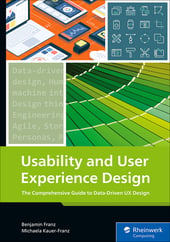As a developer, if you observe, ask questions, and listen, you have all the tools a good user researcher must have in their toolbox.
No matter which method you use later, the idea or the goal with which you do it is essential. As a user researcher, you should see yourself as a scientist. You want to learn, and your user is the expert on that subject. You’re a process expert and very good at getting the knowledge out of the person, but only your users know the usage itself.
To be successful as a scientist, you need some basic attitudes:
- You should be neutral.
- You should be interested.
- You should be friendly.
What do we mean by that? As a user researcher, your aim is to uncover “the truth”— specifically the truth of your users. You may have a hunch about what users care about or suspect the reasons behind a particular behavior. But don’t go into surveys to confirm your assumptions. A much easier tactic is to prove your assumptions wrong.
For example, if the Healthyfy team tries to disprove that telemedicine works (i.e., contrary to their idea) and finds no evidence for this hypothesis, conversely, there might be something to it. However, if the Healthyfy team gets many reasons against telehealth from users, then more work is still to be done. Notice the difference—neutrality helps you prevent believing the one user surveyed who sees everything the way you do, ignoring the 99 others who express valid concerns.
Therefore, remain neutral and accept the truth from your users—even if the result is not what you would like to hear. Thus, you should not explain, sell, or judge—even if you find this restraint problematic in a situation because the user has misunderstood something.
Always remember: Outside user research, you’re not standing next to every user. Whenever you explain, you dilute the results of your user research. Explanations don’t get you anywhere. The only thing that gets you further is understanding the root cause of the problem. This rule is true even if the answer doesn’t match you and your values. After all, the focus is the user, not you. User research would be unnecessary if everyone had the same values and opinions.
People are generally good lie detectors. User researchers often have a hard time because the power behind asking the right questions at the right time is not understood. The reason for this ambiguity involves the skills of the people you’re dealing with. Everyone has had conversations and continues to have them in everyday life. Being a good lie detector doesn’t automatically ensure that you’re a good user researcher. But it indeed ensures that you can recognize when someone is being dishonest.
And here we can turn to our second point: As a user researcher, you should have a genuine interest in people. If people don’t interest you and you don’t want anything to do with them, then the people you talk to will notice your disdain. In turn, their motivation to speak with you, devote time and energy to you, and provide you with the answers you’re looking for in detail will be shallow. Think carefully about whether you want to do user research in software development. But if you do—have fun with it, be interested and open.
The last important point is friendliness and politeness. You’re dealing with strangers who are supposed to tell you personal details. In this context, of course, rapport helps, but basically, you want to make people feel comfortable in contact with you. The rule is that, if you manage to make everyone you’ve dealt with feel better afterward than before, you’re doing everything right. Strive to be like that guest people keep inviting back to the party.
Editor’s note: This post has been adapted from a section of the book Usability and User Experience Design: The Comprehensive Guide to Data-Driven UX Design by Benjamin Franz and Michaela Kauer-Franz. Benjamin received his doctorate in engineering; his UX-related dissertation on highly automated driving was awarded the Walter Rohmert Research Prize. In his jointly founded and managed company, Custom Interactions, he focuses on user interface design. He also works as a lecturer and a keynote speaker. Michaela has a doctorate in psychology with a focus on product design and user experience. Together with Benjamin Franz, she founded the data-driven UX agency Custom Interactions, which they manage together. She also contributes her extensive experience as a trainer, a lecturer at Technische Universität Darmstadt, a speaker, and on an International Organization for Standardization (ISO) committee.
This post was originally published 7/2024.




Comments